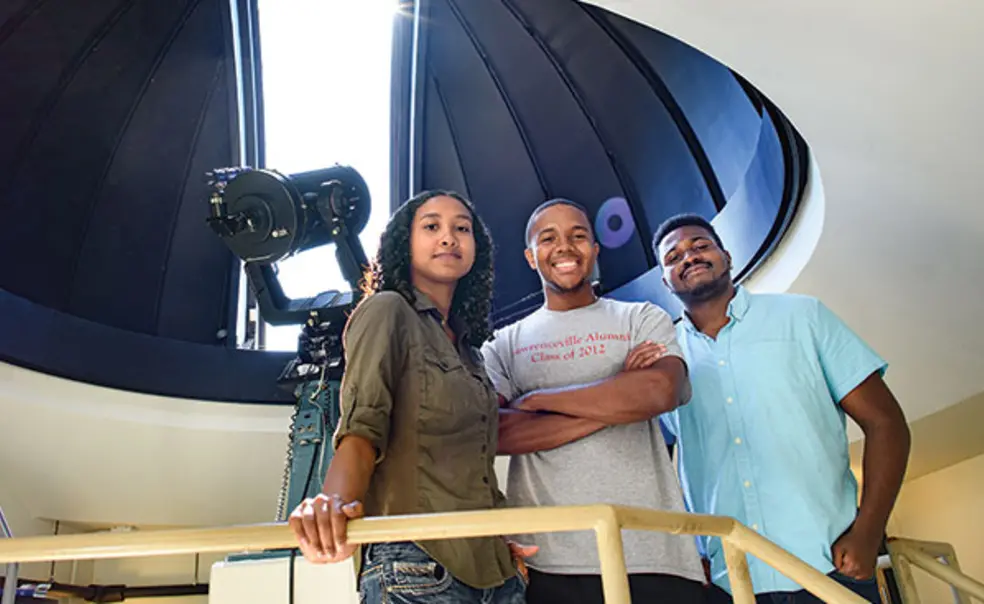Upward Bound: New Programs to Help Underrepresented Students Prepare to Pursue Ph.D.s
Seeking to address a lack of diversity among faculty at U.S. colleges and universities nationwide, Princeton is launching new strategies to encourage more women and underrepresented minority students to pursue doctoral degrees.
At the end of September, the University was reviewing applications for a director of its new Presidential Scholars Program, which will bring female students and those from underrepresented minority groups to campus to prepare them to apply for and thrive in the nation’s top Ph.D. programs. The program will consist of two tracks:
The Pathways Program will bring 15 to 20 rising sophomores at nearby colleges to do research and coursework on Princeton’s campus each summer for four years. Students will also take part in professional-development workshops and other enrichment programs at Princeton throughout the academic year.
The Junior Society of Fellows will be open to non-Princeton students who have completed their undergraduate degrees but need additional courses or want to get research experience before beginning the graduate-school application process. These students will live on campus for two years; they will get internship experience, take GRE workshops, and do whatever else is necessary to prepare, said Dean of the College Jill Dolan.
Students participating in the program will be fully funded by the University. The first Pathways Program students could arrive as soon as fall 2018, Dolan said, while the Junior Society of Fellows initiative will begin a year later. Some students may participate for all six years, while others will do just one component of the program.
The Presidential Scholars Program was suggested in spring 2016 by the Trustee Committee on Woodrow Wilson’s Legacy at Princeton, which stressed that efforts to increase diversity in all academic ranks “must begin at the graduate-student level, as today’s graduate students will become tomorrow’s postdocs and faculty.” Over the past five years, the number of graduate students at Princeton from underrepresented minorities has increased from 30 (8.8 percent of all U.S. students admitted) in 2013 to 39 (11 percent of U.S. admits) in 2017.
Aly Kassam-Remtulla, assistant provost and acting associate dean for diversity and inclusion at the Graduate School, said there are obstacles facing women and underrepresented U.S. minority students within every field and every discipline. For example, some scholars do not have sufficient funds to complete their Ph.D.s; some may not have had as many opportunities to connect and network with mentors who could help accelerate their careers; and some may face bias that makes it difficult for them to complete their careers, he said. Programs like the Presidential Scholars Program are designed to combat these problems, he added.
Other initiatives are underway in the departments of politics, physics, and astrophysics to close the gap between undergraduate coursework and doctoral programs for women and scholars from underrepresented groups. In these pilot programs, students who have graduated from other colleges take Princeton courses, work in labs, and receive mentorship from professors as they prepare to apply for graduate school.
All seven students who have completed these departmental programs — the earliest of which began in 2014 — have gone on to attend a Ph.D. program at a highly selective institution, Kassam-Remtulla said. This year, there are three students in the astrophysics program, one in physics, and six in politics.
“It’s important for Princeton to be focusing on diversifying our program, because it will have a disproportionate impact on the national scene,” he said. “Not just in terms of the numbers, but also the signal — if we start doing more, our peers will follow us.”












No responses yet